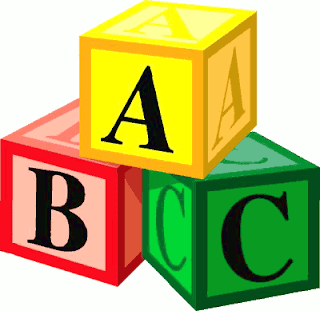Monday, December 7, 2009
Lauren N's Group Projects
Here are some tips to make your next group project successful.
· Communicate – Everyone has a different schedule and different mindset. Understanding this will make everyone’s job a lot easier.
· Stay positive – No one works well under constant negative conditions. I’m all for constructive criticism but a hint of encouragement never hurt anyone.
· Set deadlines – If everyone is finishing their part on a set deadline, less stress is established which makes working conditions much comfortable.
Below is a video explaining some guidelines on how to be a great group member.
http://www.iamnext.com/academics/grouproject.html
Follow the Leader
Respect- It is crucial that you earn the respect of the members in your group. If you are not respectful to your group mates they will not give you respect. If you do not have the respect of your group then they will not want to work or help you get tasks accomplished.
Confidence- If you plan on being a leader you will need to have confidence in what you are doing and gain the trust of your group. I know that if my group leader was not confident in what they were doing then I would not put in my best effort. However, if you know that your leader is leading the group in the right direction then you will try harder to help achieve your tasks.
Positive Energy- I recently read an article about arguably one of the greatest CEO's of all time, Jack Welch. "Leaders get into everyone's skin, exuding positive energy and optimism." Jack Welch is trying to say that leaders must be honest with their workers and guide them in the right direction. If this is done correctly than you will get the most out of your workers.
References:
http://ezinearticles.com/?Seven-Personal-Characteristics-Of-A-Good-Leader&id=59305
http://edbrenegar.typepad.com/leading_questions/2005/04/jack_welch_how_.html
C Brady's Writing Business Letters
Spellling and Grammer Misteaks

>
Well my spell check isn't going to like this post but it will be fun, how many spelling and/or grammar mistakes can you find?
Many ears ago, befor modern educashun in the new millenium, one problem in skools was baseic speeling and grammer. To conbat this and rays acheivement, teechers were adviced to start at the very begining, at the yungest age. Ones they had managed to breath new life into leessons, progres came quicklie- sucess was then garanteed. How many speeling errors would modern skolars identify in this paragraph?
http://www.qna.rediff.com/questions-and-answers/
Now as you can see by these exaggerated mistakes, the idea still gets across however it makes the writer look very uneducated and does not set a good image for him. Good grammar and spelling is not only about getting your ideas to people but it is also a way to show that you are well educated and a credible person. And in the business world credibility is a very important attribute, because if people don't believe and trust you then you are not going to make it very far.
Conflict Resolution in the Workplace
deKrizia L's Writing a Presentation
Creating a presentation is very similar to writing a business document. No matter what we're writing we need to be prepared, acknowledge the use of visuals and have a goal for the report or the document being written.
Some people seem to be born great presenters, it seems they can talk about anything and not get nervous and they can make anything sound wonderful. I was never one of those people! In fact, I would get so nervous before presenting that I honestly didn't enjoy doing it. But after presenting so many times I have realized the tips mentioned in the video really help me stay calm which really sets the stage for a better presentation and gives me confidence that carries over to the next presentation.
The video talks about being prepared by writing the speech on paper or note cards. Remember that note cards are there to spark your memory about what to say next, they are not meant to have whole sentences that you're reading directly from because that takes the professionalism out of the presentation. Another part of being prepared means going over the presentation before you acutally present it so that you know exactly what to say and when to say it and you can catch any errors before it's too late.
The use of visuals can really make or break a presentation. It's so important to keep the audience involved. Giving them something to look at during the presentation can help them make connections to what you're saying in the presentations.
Another important part of a presentation is the goal. We should really set goals in most things we do whether it's writing a blog, business report or creating a presentation; these things are all done for a reason and it's important that we sit down and know what the reason is and what we want to accomplish by creating these documents.
Video from: http://www.youtube.com/watch?v=ct7dk5GLGsw
